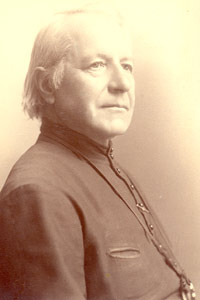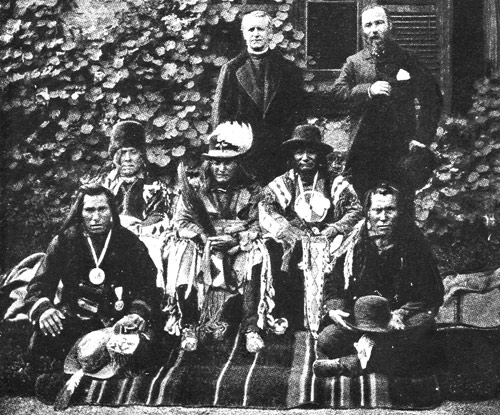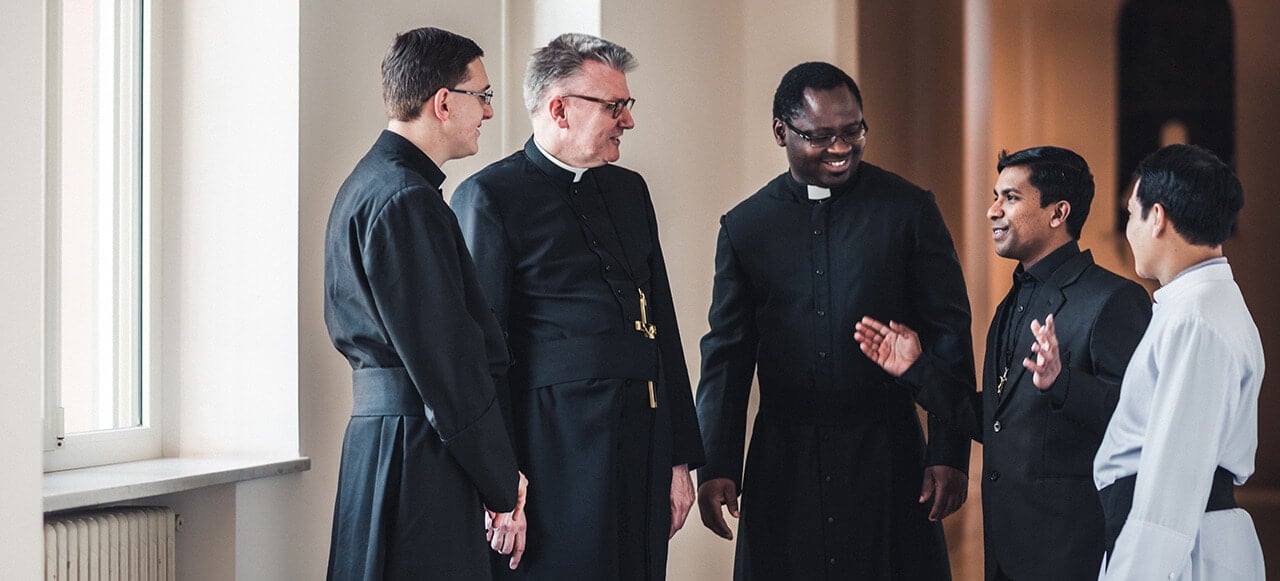
Father Lacombe devoted himself energetically to the evangelization of the Amerindian tribes spread over the territory between the Red River and the Rocky Mountains. During his many voyages he smoked the peace pipe with these children of the woods. He taught them how to pray, he looked after their sick and made himself their protector from the pale faces who were invading their territory. This apostolate included an important civilizing dimension. In a few years he became one of the most influential men in the West. He was part of the great events of the time (1849-1916): the growth of the Church, the construction of the railroad, the Riel uprising, the signing of treaties, the colonization of the West, etc. It is thanks to his influence among the Blackfoot that the Canadian Pacific could finish its railroad project in the prairies. He was able to pacify these proud Amerindians, who were dissatisfied to see the “iron horse” crossing their hunting grounds without taking into account the treaties made with the Canadian government. The authorities of the Canadian Pacific recognized Fr. Lacombe’s role in this peaceful solution, as is evident in the following anecdote told by Fr. Paul-Emile Breton, O.M.I, in his book The Big Chief of the Prairies (1954, p. 162-163).

One day Fr. Lacombe received a message from Mr. Stephen, president of the railroad: “I invite you to come dine with me tomorrow in my coach in Calgary.” The Oblate could not refuse; he hurried to attend this banquet for the inauguration of the railroad. Around the table were the guests of honor and the “big wigs” of the company: Mr. Stephen, Donald Smith, William Van Horne, R. B. Angus and many others. There was laughter, witty remarks, and stories of past events. But can you imagine a banquet without speech? Mr. Stephen rose. After recalling briefly the history of the Canadian Pacific, its spirit and recent progress, he hesitated a moment and his tone became more serious: “Gentlemen, he said to his colleagues, I regret to offer you my resignation as president of our company.” This was an astonishing gesture, to say the least. Why? … What happened? The directors looked at each other, asking each other what he meant. No, they were by no means surprised. One could even discover on some faces an air of satisfaction. In turn, one of them, Mr. Angus, spoke:
“Gentlemen, we have among us a man who rendered great services to our Company, first at Red River and again more recently here, in this vast country of the Blackfoot. It is thanks to him that we could continue in peace our project. So, I propose that Father Lacombe be elected president of the “Canadian Pacific” in Mr. Stephen’s place.” The words were hardly out of his mouth when the directors broke into applause and cheers to acclaim the missionary. Surprised, touched by this gesture, the humble religious felt a lump in his throat. Instinctively his hand clenched his Oblate cross. He hesitated… “Gentlemen, he says, finally overcoming his emotion, I thank you. What else can I say?” Then, turning to Mr. Stephen: “As for you, he said slyly, I name you priest of the new parish of Calgary in my place.” “Poor Calgary parishioners, said the ex-president, I pity you!”
The president for a day, using his privilege, at once granted himself a lifetime pass on the Canadian Pacific. All his life the missionary traveled at the expense of the Company. His pass, which said “Father Lacombe and Assistant,” became legendary. One day, it seems, the ticket-collector on a train discovered the famous ticket in the hands of two nuns: “My sisters, he said jokingly, I would like to know which of you is Fr. Lacombe?”
André DORVAL, OMI
